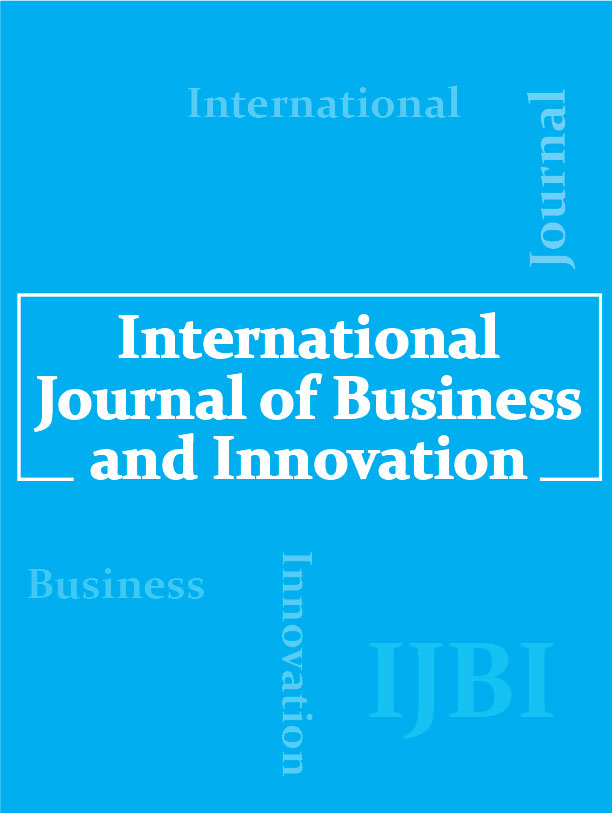Role Stressors as Predictors and Job Attitude and Turnover Intention as Outcomes of Work Family Conflict
Nadia Newaz Rimi, Mohammad Rabiul Basher Rubel
The purpose of this study is to provide a qualitative review of the predictors and outcomes of work–family conflict that: (a) provides a theoretically sound model of work–family conflict and role stressors as its antecedents and job attitude and turnover intention as outcomes; (b) disentangle the categories of role stressors (e.g., role conflict, role ambiguity, role overload) having influences on increasing work family conflict; and (c) discusses job attitude in terms of job satisfaction and organizational commitment and turnover intention that are further influenced by work family conflict. From the review of previous literatures a relationship among these variables are shown that can be empirically tested in future study.
Reward System and Knowledge Sharing Behavior among Iranian Academics: Preliminary Survey Findings
Shiva Jahani, Azura Abdullah Effendi, T-Ramayah
Knowledge sharing is one of the most important elements in organizations’ knowledge management initiatives. This paper examines the influence of the reward system on knowledge sharing behavior with two dimensions—explicit and implicit. Using regression analysis with data from 110 lectures at top universities in Iran, ranked by the Ministry of Higher Education in 2009, the results show a significant relationship between reward system and knowledge sharing. For explicit knowledge sharing, intrinsic reward (β = .457, p< .01) is statistically significant and positively associated with explicit knowledge sharing, whereas extrinsic reward (β = -.185, p< .01) is statistically significant but shows negative association with explicit knowledge sharing. Intrinsic reward (β = .344, p< .01) is statistically significant and positively associated with implicit knowledge sharing, whereas extrinsic reward (β = -.210, p< .01) is also statistically significant but shows negative association with knowledge sharing behavior. This paper further examines the implications of the findings.
Aggressive Behavior Among Adolescents in Arab Schools: A Review Paper
Khaled. M. Gezait, See Ching Mey, Melissa Ng Lee Yen Abdullah
Adolescence aggression is an important focus for educators and parents owing to its relative stability over time and consistent link to a variety of negative outcomes later in adolescence, including crime, substance use, conduct problems, poor adjustment, and academic difficulties. However, aggressive behavior may represent a normal developmental stage or indicate a serious ongoing mental health disorder that poses a safety concern.This article, discussed the strengths and weaknesses of the previous studies; it aims at providing a strategy to reduce the level of aggressive behavior among adolescents in Arab schools. Furthermore, it gives a full explanation of the issues and difficulties that provide meaningful information as guidance for researchers and counselors in this field.
The Effect of Firm Size on the Customer Accounting Information Usage; Evidences from Jordan
Hamzah Al-mawali
The purpose of this study is to contribute to the area of strategic management accounting (SMA), particularly Customer Accounting (CA) Information by explaining the firms’ size effect on the extent of usage of CA information in Jordanian service companies. The population for this study was all services companies that listed in Amman stock Exchange in 2010. Using one-way ANOVA, the results of the study indicated that only the use of one CA information dimension (lifetime customer profitability analysis) showed significant differences across the firms’ size. However, the extent of usage of the remaining CA information dimensions shows no significant differences across the firms’ size.
The Effect of Service Product Innovation Management on Market Performance through Organizational Culture: In Context of Service Product Industry
Seyedeh Khadijeh Taghizadeh, Syed Abidur Rahman
This paper aims to present a conceptual model for service product innovation management in service product industry. The authors develop a conceptual model and propositions, grounded in previous studies on service product innovation management, market performance, and organizational culture. The model proposes to study the effect of service product innovation management on the level of market performance enhancement. In addition to that it also considers focusing on organizational culture that can influence the relationship between service product innovation management and market performance.This paper will facilitate the business managers to understand the perspective of service product innovation management. The proposed model is expected to offer a guideline to the service product industry and may be customized to invoke an innovation process in other service industry in different geographic locations.
